Best Decentralized Crypto Wallets: Everything You Need to Know
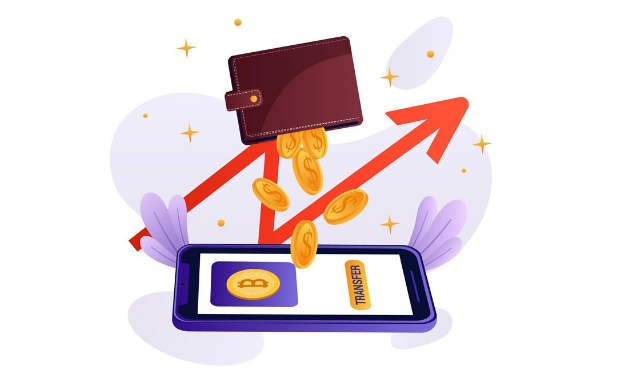
Decentralized Crypto Wallets serve as intermediaries between users and blockchain platforms, facilitating transactions and providing real-time balance monitoring for cryptocurrencies.
For someone like me who enjoys staying updated on my crypto holdings, digital wallets are valuable.
Whether I'm sending funds to a friend or checking my balance after a trade, having a user-friendly interface to interact with multiple blockchain networks makes managing my crypto assets a breeze.
Let's dive into the various decentralized Crypto Wallets available today to help you navigate this decision more confidently.
Table of Contents
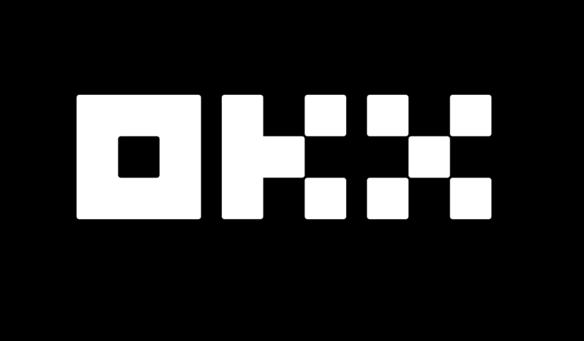
OKX
OKX stands as the world's second-largest crypto exchange in terms of trading volume, renowned for its leading Web3 ecosystem. Trusted by over 50 million users globally, OKX ensures transparency through monthly Proof of Reserve releases.
For professional traders, OKX offers the fastest and most reliable crypto trading app.
With OKX, users can access a vast array of features:
- Wide Token Selection: Trade over 350 tokens with 100+ local currencies, providing ample opportunities for diversified investment portfolios.
- DEX Functionality: Benefit from decentralized exchange (DEX) features, empowering users with control over their assets and fostering a trustless environment for trading cryptocurrencies securely.
- Web3 Integration: Explore the realm of Web3 and take full control of your crypto, NFTs, and digital assets through the OKX Wallet, empowering users to manage their assets with ease and security.
For me, OKX's commitment to innovation and its comprehensive suite of crypto products and services make it an appealing platform.
Whether I'm actively trading, diversifying my portfolio, or delving into the world of NFTs, OKX provides the tools and resources I need to navigate the crypto landscape with confidence.
Pros:
- Extensive Cryptocurrency Selection: Access over 320 tradable cryptocurrencies, providing ample options for diversifying investment portfolios.
- Low Trading Fees: Benefit from low trading fees for both spot and futures trades, allowing users to maximize their returns on investment.
- High Leverage Trading: Enjoy the opportunity for up to 100x leverage trades on futures and up to 10x leverage on spot trades, offering potential for amplified profits.
Cons:
- Geographical Restrictions: Not available for users in the US or Canada, limiting accessibility for individuals residing in these regions.
- Identity Verification Requirement: Mandatory identity verification is necessary for crypto deposits, potentially deterring users who prioritize anonymity.
- Challenging Fiat Withdrawals: Fiat withdrawals, such as USD or GBP, may pose difficulties, potentially causing inconvenience for users seeking to cash out their funds.

Zengo Wallet
Zengo is a mobile app crypto wallet renowned for its extensive support, catering to over 120 cryptocurrencies. Notably, it offers multi-chain support for NFTs, coupled with a built-in dApp marketplace utilizing WalletConnect for seamless interactions with leading Web3 dApps.
With Zengo, users can effortlessly buy, sell, and trade cryptocurrencies and NFTs directly from their mobile devices. However, what truly sets Zengo apart and earns it a top spot among decentralized crypto wallets is its impressive track record in security and high customer ratings.
As someone who values both convenience and security in managing my crypto assets, Zengo's user-friendly interface and robust security measures make it an appealing choice.
Whether I'm engaging in transactions or exploring the vibrant world of NFTs, Zengo provides a seamless and secure platform to navigate the crypto landscape with confidence.
Pros:
- Self-Custody Convenience: Zengo offers a self-custody wallet without requiring users to manage a seed phrase, simplifying the security process for managing crypto assets.
- Extensive Crypto Support: With support for over 120 cryptocurrencies, Zengo provides versatility in managing diverse crypto portfolios.
- NFT Support: Zengo includes support for NFTs, allowing users to manage and trade non-fungible tokens directly from the wallet.
- Buy, Sell, and Trade: Users can easily conduct transactions such as buying, selling, and trading cryptocurrencies within the Zengo wallet interface.
- dApp Marketplace Integration: The wallet features a dApp marketplace powered by WalletConnect, enabling seamless interactions with a variety of decentralized applications.
- Feature-Rich Free Version: Zengo offers a feature-rich free version of the wallet, providing users with essential functionalities without the need for a subscription.
Cons:
- Marked-Up Crypto Prices: Crypto prices within Zengo may be marked up compared to market prices, potentially resulting in higher transaction costs for users.
- Pro Version Requirements: Certain features such as Web3 firewall and Legacy Transfer services require users to upgrade to the Pro version of Zengo, limiting access for free-tier users.
- Limited Cryptocurrency Support: Zengo Wallet does not currently support popular cryptocurrencies like Solana, XRP, Cardano, or Polkadot, potentially limiting options for users with specific investment preferences.
Also read; How to Use DEXs In 2024( Complete Beginner's Guide)
Best Wallet
Best Wallet stands out as one of the top decentralized crypto wallets, offering self-custody and multi-chain functionality. It goes beyond a typical wallet by incorporating a range of features and introducing its native token – $BEST – which transforms it into a comprehensive Web3 platform.
Creating a Best Wallet account is a breeze, requiring only an active email and a four-digit passcode, with no need for extensive Know Your Customer (KYC) details. This makes it an excellent option for users seeking anonymity in their crypto transactions.
Users can customize their security preferences, opting for additional features like two-factor authentication or fingerprint ID, or simply sticking with the basic four-digit code.
With its multi-chain support, Best Wallet enables safe and anonymous purchasing, transferring, and storing of crypto tokens. Moreover, it boasts a built-in decentralized exchange, allowing users to trade thousands of tokens seamlessly.
The $BEST token adds further value to the platform, offering holders opportunities for staking rewards, reduced fees, and early access to new crypto launches.
As someone who values both privacy and functionality in managing my crypto assets, Best Wallet's comprehensive features and promising roadmap make it an appealing choice for navigating the decentralized finance landscape.
Pros:
- Best Wallet offers a decentralized solution for managing crypto assets, ensuring users retain full control over their funds.
- Enhanced Security: With a focus on security, Best Wallet provides safe storage for cryptocurrencies, incorporating features like two-factor authentication for added protection.
- Multi-Chain Functionality and Built-In DEX: Users can benefit from multi-chain functionality, enabling seamless interaction with various blockchain networks. Additionally, the built-in decentralized exchange (DEX) facilitates easy trading of cryptocurrencies.
- $BEST Staking and Airdrop: The $BEST token allows users to stake their holdings, earning rewards, and participate in airdrop events, enhancing the utility of the wallet.
- Unique Insights: Best Wallet provides unique insights on trending cryptocurrencies, empowering users to make informed investment decisions.
- Reduced Fees and Early Access: Holders of the $BEST token enjoy reduced fees and early access to new projects, providing additional benefits and opportunities within the ecosystem.
Cons:
- Feature Rollout: Not all features may be live at the moment, potentially limiting access to certain functionalities until they are fully implemented.
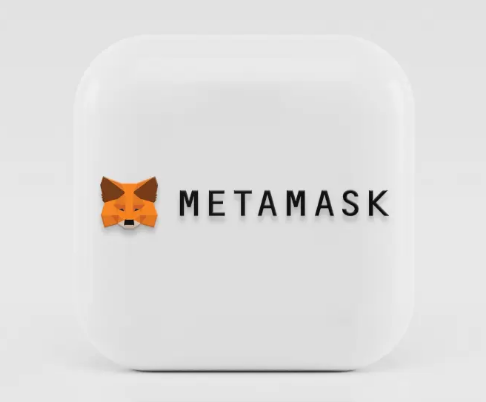
MetaMask
MetaMask is a decentralized crypto wallet highly favored by dApp, NFT users, and Ethereum-focused investors. It earns our top spot as the best overall decentralized crypto wallet due to its exceptional optimization across all key aspects. It particularly shines in its extensive coverage and diversity of supported cryptocurrencies, especially ERC-20 tokens and Ethereum-based coins, making it a standout choice for Ethereum enthusiasts.
In terms of security, MetaMask sets a high standard. It operates as a non-custodial wallet, ensuring that users retain full control over their assets without the need to divulge personal information. Private keys and crypto assets are solely owned by the user, safeguarded by a password and backup passphrase for added protection.
As someone deeply involved in the Ethereum ecosystem and interested in exploring various ERC-20 tokens, MetaMask's seamless integration, robust security measures, and broad token support make it an indispensable tool in managing my crypto assets.
MetaMask offers both mobile app and browser extension functionality, catering to users across various platforms. While it lacks a dedicated desktop application, the browser extension and web interface adequately serve the needs of most desktop users.
Designed primarily for Ethereum and Ethereum-based tokens, MetaMask provides comprehensive support for tens of thousands of ERC-20 tokens and several significant cryptocurrencies within the Ethereum ecosystem.
Pros:
- Versatile Asset Storage: MetaMask accommodates storage for any Ethereum coin or ERC-20 token, offering comprehensive support for a wide range of assets within the Ethereum ecosystem.
- User-Friendly Interface: Well-suited for beginners, MetaMask provides an intuitive and straightforward user experience, making it accessible to users of all levels of expertise.
- Extensive Support: It offers support for ERC-20 tokens, decentralized applications (dApps), DeFi applications, and non-fungible tokens (NFTs), enabling users to engage with various facets of the crypto space.
- Seamless Integration with dApps: MetaMask seamlessly connects to popular dApps such as Opensea and Uniswap, facilitating convenient interactions with decentralized platforms and services.
- No Fees: Users benefit from no maintenance or account registration fees, ensuring cost-effective management of crypto assets.
- Wide User Base: With over 30 million users, MetaMask boasts a large and active user base, contributing to its credibility and reliability.
Cons:
- Limited Cryptocurrency Support: MetaMask does not support non-Ethereum coins like Bitcoin and other cryptocurrencies outside of the Ethereum ecosystem, potentially limiting options for users with diverse investment portfolios.
- Lack of Desktop Application: While MetaMask offers mobile app and browser extension functionality, it lacks a dedicated desktop application, which may inconvenience users preferring desktop-based interfaces.
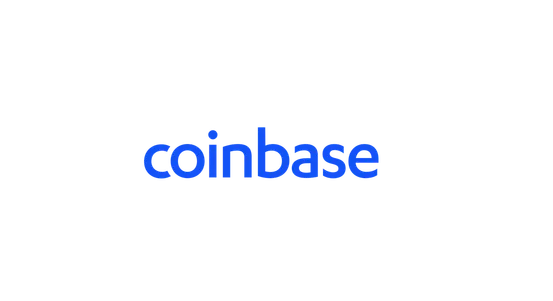
Coinbase Defi Wallet
Coinbase Wallet serves as a decentralized counterpart to the larger Coinbase ecosystem, renowned as one of the leading crypto exchanges globally and particularly popular in the US.
Despite its association with Coinbase, the wallet maintains its non-custodial nature, affording users complete autonomy over their assets.
While users have the option to connect Coinbase Wallet to their Coinbase exchange accounts for expanded functionality, the wallet itself offers robust features independently.
It supports storage for hundreds of thousands of cryptocurrencies and tokens, facilitates NFT management and interaction with other wallets, and provides access to the dApp space.
One notable aspect of Coinbase Wallet is its commitment to privacy and security. It refrains from collecting personal information or sharing it with the Coinbase centralized exchange (CEX). Private keys are encrypted and delivered through a backup passphrase, ensuring that the exchange cannot access them.
Although Coinbase Wallet does not directly support staking for certain cryptocurrencies, users can leverage decentralized applications (dApps) like Uniswap to engage in staking activities. The wallet seamlessly integrates with various dApps, offering users a gateway to a multitude of decentralized services and functionalities.
Pros:
- Extensive Coin and Token Support: Coinbase Wallet offers support for a wide range of coins and tokens, providing users with ample options for managing their cryptocurrency portfolios.
- User-Friendly Interface: With a user-friendly interface, Coinbase Wallet is well-suited for beginners who are new to the world of cryptocurrency, making it easy to navigate and utilize its features.
- Privacy Assurance: The wallet does not share any user data with the Coinbase centralized exchange (CEX), ensuring privacy and confidentiality for users' information.
- Integration with dApps and DeFi Apps: Coinbase Wallet seamlessly connects with numerous decentralized applications (dApps) and decentralized finance (DeFi) apps, expanding its functionality and utility within the broader crypto ecosystem.
- Two-Factor Authentication (2FA): Coinbase Wallet offers a two-factor authentication feature for added security, enhancing protection against unauthorized access.
Cons:
- Lack of Desktop App: Coinbase Wallet does not have a desktop application, limiting accessibility for users who prefer desktop-based platforms.
- High Transaction Fees: Users may encounter high transaction fees when using Coinbase Wallet, potentially impacting the cost-effectiveness of frequent transactions.
Overall, Coinbase Wallet's extensive coin support, user-friendly interface, privacy assurances, and integration with dApps make it a compelling option for managing cryptocurrency assets. However, the absence of a desktop app and high transaction fees are notable drawbacks to consider when evaluating its suitability for individual needs.
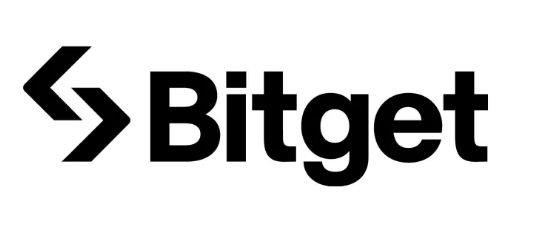
Bitget Wallet
Bitget Wallet emerges as the ultimate Web3 multi-chain wallet, offering a comprehensive suite of features including Swap, Asset Discovery and Management, NFT Marketplace, DApp Browser, and Launchpad. Since its inception in 2018, it has garnered a sizable user base of over 10 million individuals spanning 168 countries globally.
As someone deeply engaged in the crypto space and interested in exploring NFTs, Bitget Wallet's comprehensive functionality and commitment to security make it an enticing option. Whether I'm managing assets, exploring decentralized applications, or trading NFTs, Bitget Wallet provides a reliable and feature-rich platform to navigate the evolving landscape of Web3.
Impressively, Bitget Wallet supports an extensive array of assets, with over 255,400 cryptocurrencies and access to 20,000 DApps from more than 90 mainnets. Notably, its NFT Marketplace ranks among the largest on BNB Chain and Polygon, boasting an impressive collection of over 220,000 NFTs and facilitating $40 million in trading volume.
What sets Bitget Wallet apart is its robust security measures. Employing a unique DESM encryption algorithm and backed by a shared $300 million Bitget Protection Fund, the platform prioritizes user security and fund safety.
Pros:
- Extensive Cryptocurrency Selection: Bitget Wallet offers access to over 600 cryptocurrencies, providing users with ample options for diversifying their portfolios and exploring various digital assets.
- Copy Trading and Bot Trading: The platform features copy trading and bot trading functionalities, allowing users to replicate the strategies of successful traders or automate their own trading strategies.
- Staking and Earning Products: Bitget Wallet provides cryptocurrency staking and earning products, enabling users to earn rewards or interest on their digital assets through passive means.
Cons:
- Limited Availability: Bitget Wallet may not be available in all countries, potentially restricting access for users residing in unsupported regions.
- Account Freezing Complaints: Some users have reported instances of their accounts being frozen, highlighting potential concerns regarding platform reliability and customer support.
- High Fees for Card Purchases: Crypto purchases made with a card on Bitget Wallet may incur high fees, potentially dissuading users from utilizing this payment method for transactions.
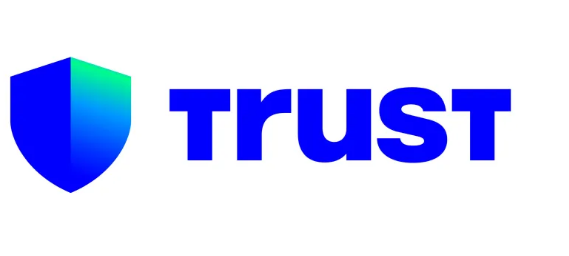
Trust Wallet
Trust Wallet stands out as a decentralized crypto wallet, despite its affiliation with the larger Binance ecosystem. Unlike Binance, which is centralized, Trust Wallet operates independently, ensuring users aren't affected by Binance's regulatory issues in the US.
The wallet prioritizes security by not storing users' private keys or data, maintaining full decentralization. However, to access Binance's extensive range of services, users must connect to the exchange.
Nevertheless, Trust Wallet offers a plethora of features on its own. It supports millions of tokens and cryptocurrencies, including NFTs, and integrates with various decentralized applications (dApps). Additionally, its built-in Web3 browser enhances accessibility to decentralized platforms.
As someone who values security and autonomy in managing my crypto assets, Trust Wallet's commitment to decentralization and extensive functionality aligns with my preferences.
Its seamless integration with the Binance ecosystem provides added convenience, allowing me to explore a wide range of services and assets within a secure environment.
Pros:
- Wide Token Support: Trust Wallet accommodates millions of tokens, providing users with extensive options for managing their crypto portfolios.
- Integration with Binance Exchange: Users can connect Trust Wallet to the Binance exchange, enabling seamless access to a diverse range of services offered by one of the largest crypto exchanges.
- Support for dApps and NFTs: Trust Wallet facilitates interactions with decentralized applications (dApps) and supports Non-Fungible Tokens (NFTs), enhancing its utility for engaging with various aspects of the crypto ecosystem.
- Independence from Binance: Despite its affiliation with Binance, Trust Wallet operates independently, ensuring users' assets and transactions remain separate from the exchange, mitigating potential regulatory concerns.
- Built-in Staking Options: The wallet offers built-in staking options, allowing users to earn rewards by participating in cryptocurrency staking activities.
Cons:
- KYC Requirement for Card Payments: Users may need to undergo Know Your Customer (KYC) verification for card payments, adding an additional step for those seeking to use this payment method.
- Lack of Cold Storage Support: Trust Wallet does not support cold storage, potentially limiting options for users seeking enhanced security measures for their crypto assets.
As someone who values flexibility and accessibility in managing crypto assets, Trust Wallet's extensive token support, seamless integration with Binance, and support for dApps align well with my needs.
While the KYC requirement for card payments may present a slight inconvenience, the wallet's independence from Binance and built-in staking options provide added peace of mind and earning opportunities.

Uniswap Wallet
Uniswap Wallet is a highly secure decentralized wallet that links seamlessly with the renowned Uniswap decentralized crypto exchange. Despite its recent introduction, its association with the reputable Uniswap Labs prompted its inclusion on our radar.
Praised for its robust security measures, open-source framework, and intuitive design, Uniswap Wallet shares the decentralized ethos of its exchange counterpart.
It operates as a non-custodial wallet, ensuring that private keys and seed phrases remain locally stored on users' devices. Presently available exclusively on iOS devices, it caters to mobile users seeking a reliable crypto storage solution.
Pros:
- Integration with Uniswap DEX: Uniswap Wallet seamlessly connects to the Uniswap decentralized exchange (DEX), providing users with convenient access to one of the leading decentralized trading platforms.
- Fast and Easy-to-Use Swap Feature: The wallet offers a user-friendly swap feature, enabling quick and hassle-free cryptocurrency exchanges directly within the app.
- Connectivity with dApps: Uniswap Wallet facilitates connections with various decentralized applications (dApps), expanding its functionality and utility within the broader decentralized ecosystem.
- Token and NFT Storage: Users can store a wide range of cryptocurrencies and Non-Fungible Tokens (NFTs) within the wallet, enhancing its versatility as a storage solution for digital assets.
Safety Warnings and Spam Filters: The wallet includes safety warnings and spam filters, providing additional layers of security to help users avoid potential risks and fraudulent activities.
Cons:
- Limited Availability to iOS Devices: Uniswap Wallet is currently available exclusively on iOS devices, limiting accessibility for users who prefer alternative operating systems.
- New on the Market: As a relatively new entrant to the market, Uniswap Wallet may still be evolving in terms of features and functionality, potentially encountering some limitations or challenges.
Despite its limited availability on iOS devices and its status as a newcomer, Uniswap Wallet boasts top-notch security, user-friendly design, and seamless integration with the Uniswap DEX, making it a promising option for those seeking a decentralized wallet solution.
For me, finding the perfect balance between convenience and security is key. I want a wallet that's easy to use and access, but I also prioritize keeping my assets safe from potential threats. By weighing these factors, I can make an informed decision about which wallet aligns best with my needs and preferences.
You can also read Centralized (CEX) vs Decentralized Exchange(DEX) Usage Statistics



